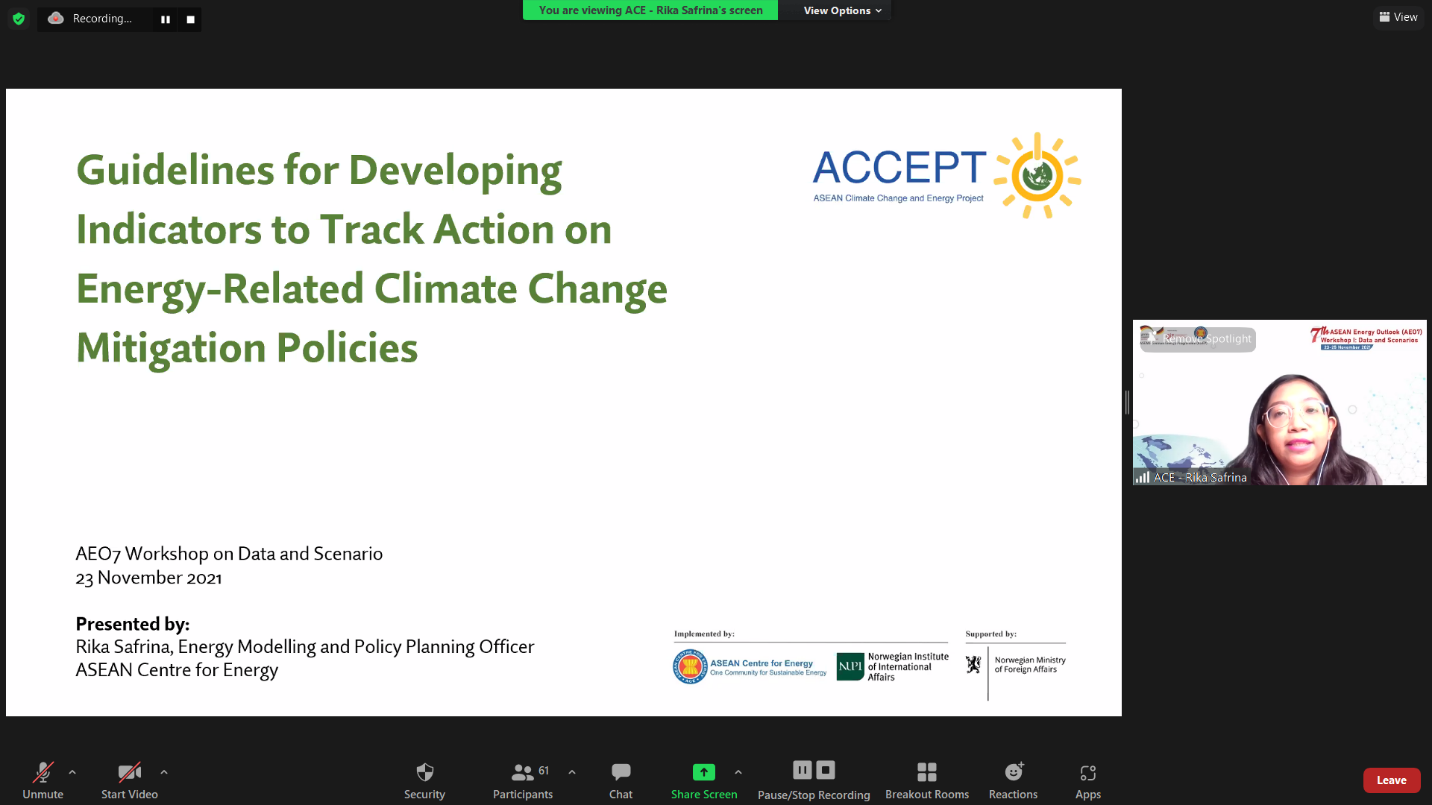Online, 23 November 2021

On 23 November 2021, the 7th ASEAN Energy Outlook (AEO7) Workshop I: Data and Scenarios was held by the ASEAN Centre of Energy (ACE) through the ASEAN-German Energy Program (AGEP). The objectives of the workshop were to present the updates on AEO7 modelling works and the general assumption in developing the parameters, to gather input and consult with AMS on scenarios development along with its key assumptions, and to complete the data required that will be processed for AEO7 modelling.
Opened by Nuki Agya Utama as Executive Director of ACE and Sergey Makarov as Principal Advisor of AGEP, the workshop was attended by the representatives of 10 ASEAN Member States (AMS), especially Energy Policy Expert/Modeler and the Energy Data Expert/Statistician from the ministries of energy. In this workshop, Ms. Rika Safrina, Energy Modelling and Policy Planning Officer of ACE was given a chance to speak during the “Expert Sharing Session”, presenting the Guidelines for Developing Indicators to Track Action on Energy-Related Climate Change Mitigation Policies, a recent report developed with full support from the ASEAN Climate Change and Energy Project (ACCEPT). Other experts who shared their expertise in the workshop include Dr. Tharinya Supasa from Agora Energiewende, Yuji Mizuno from The Institute of Energy Economics Japan (IEEJ), and Toru Muta from International Energy Agency (IEA).
Ms. Rika opened her presentation by introducing the background of the report which is to help AMS synergise energy and climate policies by utilising robust data and indicators to track actions on climate change mitigation policies related to the energy sector. The report is also in line with the mandated purpose of ASEAN Plan of Action for Energy Cooperation 2016-2025 Phase 2: 2020-2025, Programme Area No.6 Regional Energy Policy and Planning, Outcome-Based Strategy 2 to raise the level of data and analysis on ASEAN’s Energy Policy and Planning.
During her presentation, Ms. Rika explained the nexus between statistics and policymaking, forms of indicators used in energy policies, and the composition of a policy goal. Scrutinizing the importance of measurable and specific indicators, Ms. Rika then mentioned renewable energy and energy efficiency indicators that can be used to track a country’s climate actions. For example, the indicators to assess the share of renewable energy include Total Primary Energy Supply, Installed Power Capacity, and Total Final Energy Consumption, each having a specific function. She also explained how to collect data for indicators and present them in the clearest and the most precise manner.
As energy-related climate change mitigation policies become more prevalent in developing models for energy outlook, Rika closed her presentation by explaining that the report from ACCEPT can further support the development of the ASEAN Energy Outlook. This support, among others, is in the form of providing guidelines on data utilization, data presentation, choosing baseline and methodology, and solving statistical-related issues. It is expected that these guidelines will be one of the principles of ACE in developing the AEO7 that is going to be published in the upcoming year.
(AF/RS)